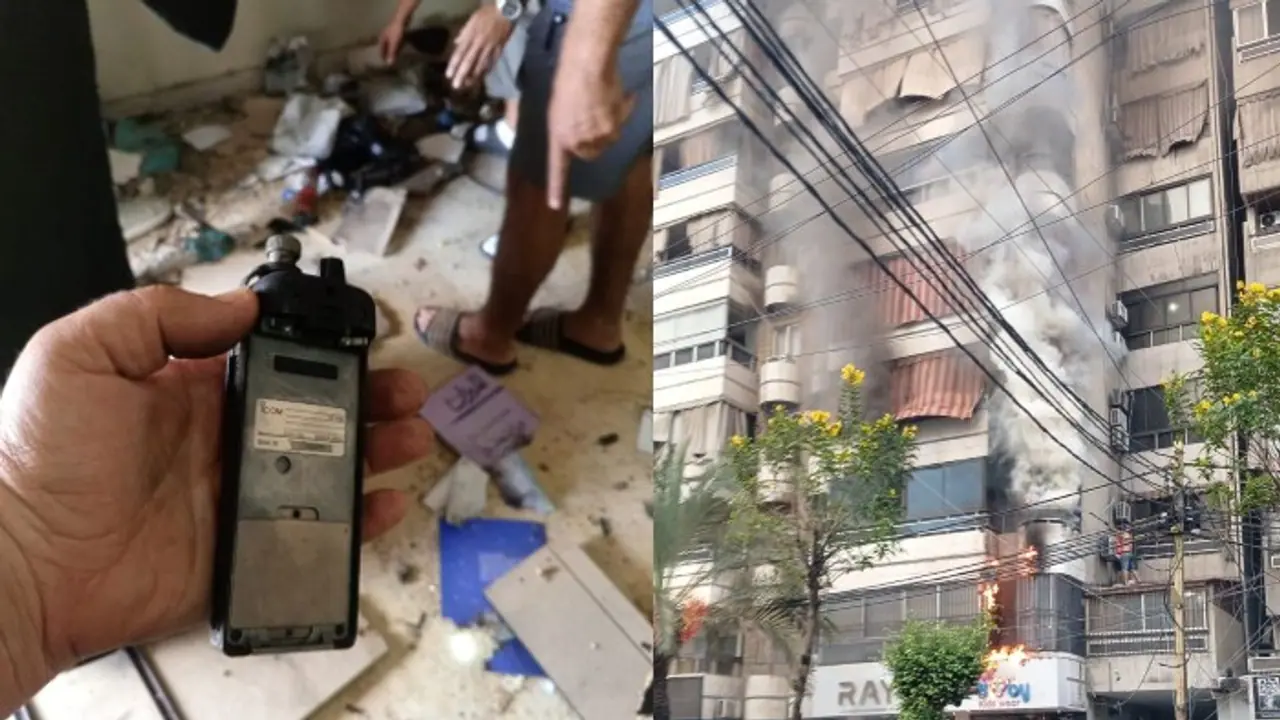Lebanon was rocked by another devastating wave of explosions on Wednesday, as communication devices including walkie-talkies and home solar energy systems exploded in multiple regions, killing at least nine people and injuring over 300.
Lebanon was rocked by another devastating wave of explosions on Wednesday, as communication devices including walkie-talkies, hand-held radios, and home solar energy systems exploded in multiple regions, killing at least nine people and injuring over 300. The blasts came a day after a similar attack involving pager explosions that claimed twelve lives, including two children, and left over 3,000 people wounded.

The epicenter of Wednesday's explosions stretched across Lebanon, hitting areas in the southern suburbs of Beirut, southern Lebanon, and the Bekaa region. This time, the devices identified as Icom F82 hand-held radios, widely used by Hezbollah for secure communications, were at the core of the blasts. The radios, capable of encrypted voice and data transmission across Lebanon's mountainous terrain, exploded in several locations, triggering panic and chaos.
Notably, one explosion occurred during a funeral in southern Beirut, where mourners had gathered to bid farewell to three Hezbollah members and a child who had perished in the pager explosions on Tuesday. Over 100 people attending the funeral were injured in the blast, adding to the casualties from this fresh wave of attacks.
In addition to communication devices, solar energy systems in homes across southern Lebanon also exploded, further compounding the devastation. Lebanon's National News Agency reported that several homes in towns like al-Zahrani in southern Lebanon witnessed these explosions, leaving at least one young girl injured. Pictures circulating on social media showed wrecked solar panels and destroyed electronic devices, though it remains unclear whether these systems exploded independently or were impacted by the nearby detonating walkie-talkies.
Hezbollah, the Iran-backed militant group, was once again at the heart of these attacks. The communication devices that exploded were reportedly purchased by Hezbollah five months ago, around the same time that the group had acquired the pagers involved in Tuesday’s attacks. Many of the explosions occurred in areas under Hezbollah’s influence, heightening suspicions of sabotage.
Although there has been no official confirmation, Israeli intelligence agency Mossad is suspected to have planted explosives inside the imported devices. Hezbollah’s leadership, including Hashem Safieddine, head of its Executive Council, has vowed a “bloodily unique revenge” in response, though Israel's military has declined to comment on the situation.
Wednesday's attacks resulted in the deaths of at least nine individuals, with over 300 people reported injured. Health Minister Firass Abiad said that the number of wounded includes numerous Hezbollah fighters, as well as civilians, many of whom suffered severe eye injuries or had limbs amputated. The injured were dispersed to various hospitals across Lebanon to avoid overburdening a single facility. Nations including Turkey, Iraq, Iran, Syria, and Egypt have offered assistance in treating the wounded.
The situation remains dire, with over 30 ambulances deployed to affected areas and an additional 50 on standby, according to the Lebanese Red Cross.
The UN Security Council is set to hold an emergency meeting on Friday to address the alarming wave of explosions in Lebanon. The meeting was requested by Algeria on behalf of Arab states, and the international community is closely monitoring the escalating conflict.
UN Secretary-General António Guterres expressed grave concern over the attacks, urging all parties to exercise "maximum restraint" to prevent further escalation. In a statement, Guterres called for an immediate cessation of hostilities, emphasizing the need to restore stability in the region.
The attacks on Hezbollah come at a time of heightened tensions between Israel and the group, particularly following the Gaza conflict, which began last October. The ongoing cross-border warfare has raised fears of a broader Middle East conflict that could potentially draw in the United States and Iran.
